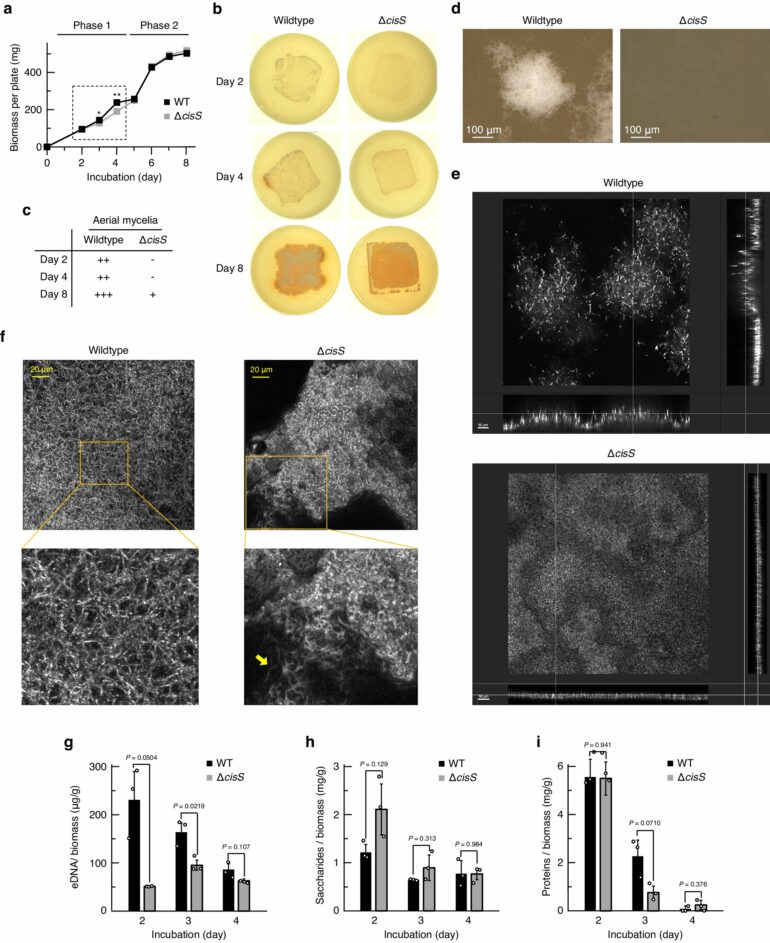Researchers from University of Tsukuba have discovered that virus-like nanoparticles can promote the multicellular organization and reproduction of host bacteria. These particles, which are evolutionarily related to phages (viruses that infect bacteria), contain an enzyme that helps shape the multicellular architecture and ultimately enhances morphological differentiation. The findings are published in the journal Nature Communications.
Viruses are ubiquitous in the environment, and organisms have developed various mechanisms to counter their threat. However, the genome of actinomycetes contains a highly conserved gene set encoding virus-like nanoparticles, although its biological significance has remained unclear.
In a new study, researchers examined Streptomyces davawensis, an actinomycete species, and discovered that it produces virus-like particles that facilitate host reproduction. Extracellular DNA, which serves as a scaffold for multicellular organization, was significantly reduced in the colonies of mutant S. davawensis strains lacking virus-like particle production and cells trapped in abnormal aggregates.
Detailed analysis revealed that the virus-like particles contain a unique enzyme (effector) crucial to their function, which partially degrades genomic DNA.
The effector is released from the particle and localizes at the host cell membrane. The proposed model suggests that the effector partially degrades genomic DNA, bridging the intracellular and extracellular environments, thereby facilitating extracellular DNA release and providing a scaffold and nutrients for host cell reproduction.
These findings reveal the exploitation mechanism of virus-related nanoparticles for bacterial proliferation and offer a novel strategy to reprogram virus-related nanoparticle functionality through modulation of effector activity for various applications in biotechnology.
More information:
Toshiki Nagakubo et al, Contractile injection systems facilitate sporogenic differentiation of Streptomyces davawensis through the action of a phage tapemeasure protein-related effector, Nature Communications (2024). DOI: 10.1038/s41467-024-48834-9
Provided by
University of Tsukuba
Citation:
Scientists discover virus-like nanoparticles control the multicellular organization and reproduction of host bacteria (2024, May 31)



